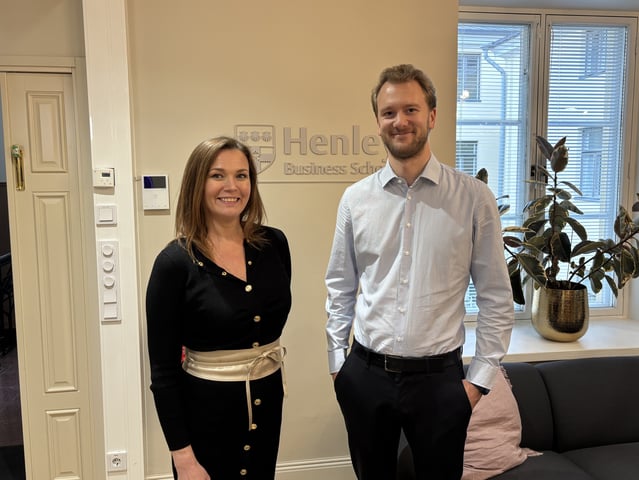Clare Calderan, Associate Professor, Finance and Accounting at Henley Business School and Professor of the CEO 360 Programme, highlights the game-changing role of IFRS S1 and S2 in supporting sustainability as a strategic advantage
Finance leaders are at the centre of a shift. With sustainability issues affecting budgeting, forecasting, audit prep, and scenario analysis, CFOs must lead the charge to ensure data quality and cross-functional coordination take centre stage, for continued investor trust and transparency. But with the demand for quantitative and qualitative veracity growing – many organisations aren’t fully ready.
IFRS S1 General Requirements for Disclosure of Sustainability-related Financial Information (IFRS S1) and IFRS S2 Climate-related Disclosures (IFRS S2), issued by the International Sustainability Standards Board (ISSB) in 2024, have the potential to change the game for corporate reporting. These new standards bring sustainability into the financial mainstream – not as an add-on, but as a core part of risk and performance reporting.
At first glance, they may seem dull or overly technical. But for CEOs and boards, they represent a shift: away from box-ticking compliance and towards sustainability as a strategic advantage. These standards aren’t just about disclosures. They are tools to compete, grow, and future-proof the business.
Though voluntary in many regions, IFRS S1 and S2 are being rapidly adopted. Australia mandated them from January 2025, while the UK’s proposed Sustainability Reporting Standards will closely track them. As of mid-2025, 36 jurisdictions have adopted, are using, or are planning to align with the standards.
IFRS S1 requires companies to disclose all material sustainability-related risks and opportunities. IFRS S2 focuses on climate – transition risks (like carbon pricing), physical risks (e.g. extreme weather), and climate-related opportunities. Both follow the well-established TCFD framework: governance, strategy, risk management, and metrics and targets.
This isn’t about feel-good PR. The standards require connected, auditable data – showing how sustainability issues affect financial statements, asset values, and corporate strategy. They demand specifics: governance, risk assessments, emissions data, targets, and financial impact. This builds investor trust and filters out greenwashing.
Beyond compliance, the strategic implications are real. Sustainability risk is increasingly priced into the cost of capital. Lenders and investors are applying premiums to poor ESG performance. Sustainability-linked loans and climate disclosures already affect financing – and will likely affect risk-weighted assets in the future under Basel reforms. But capital is more than debt: reputation and brand strength – both influenced by sustainability strategy – are increasingly linked to shareholder returns.
This is also relevant under Europe’s SFDR, which is already diverting capital away from high-risk sectors. Stranded assets are an emerging threat. Real estate in climate-sensitive areas, fossil fuel reserves, or carbon-intensive infrastructure could face sudden value loss.
More than compliance, sustainability must be woven into growth strategies, innovation, and market positioning. CEOs should be asking:
- Are we building sustainability into our growth strategy, innovation roadmap, and operating model — or just reporting on it?
- Do we have the systems, people, and governance to ensure credible, high-quality sustainability data today and at scale tomorrow?
- How are we leveraging early adoption to boost brand trust, shareholder returns, and access to lower-cost capital?
Early adoption of IFRS S1 and S2 will likely pay dividends in trust, brand equity, and access to capital – all tied to long-term value creation. The bottom line: sustainability is no longer a side agenda, it’s a competitive differentiator.
Clare teaches the Executive Finance module in our CEO 360 -programme starting in February 2026. Read more about the programme here.










